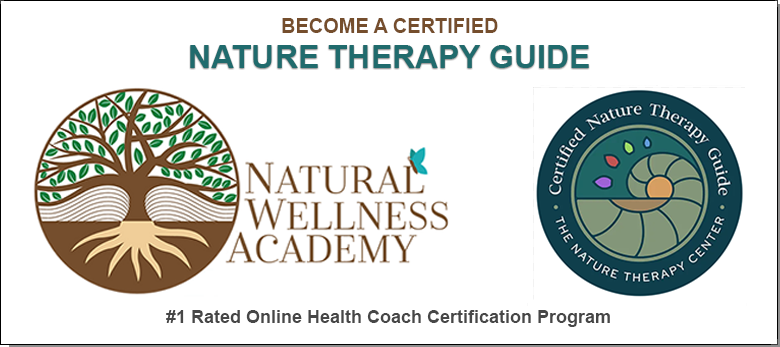
Depression is a pervasive mental health condition that affects millions of people globally, often leading to feelings of sadness, hopelessness, and a lack of energy. While traditional treatments such as medication and therapy are critical in managing depression, many are turning to complementary approaches to find relief. One such approach is nature therapy, which involves using natural environments to promote mental and emotional well-being. This article explores how nature therapy and depression are connected and how harnessing the power of nature can provide a natural, effective way to alleviate depressive symptoms.
Contents
The Science Behind Nature Therapy
Nature therapy, also known as ecotherapy or green therapy, is rooted in the idea that humans have an intrinsic connection to the natural world. This connection, when nurtured, can lead to significant improvements in mental health, including the reduction of depression symptoms. Scientific studies have increasingly shown that spending time in nature has a profound impact on mental well-being.
The Psychological Benefits of Nature Exposure
Research has demonstrated that time spent in natural environments can lower stress levels, reduce anxiety, and enhance mood. These effects are primarily due to the calming influence of nature, which can counteract the overstimulation and stress often experienced in urban settings. A study published in the journal Environmental Health and Preventive Medicine found that participants who took walks in forested areas reported lower levels of cortisol, the body’s primary stress hormone, compared to those who walked in urban environments.
Nature’s Impact on the Brain
Spending time in nature also affects brain activity. Studies using functional MRI (fMRI) scans have shown that people who spend time in natural environments exhibit reduced activity in the prefrontal cortex, the area of the brain associated with repetitive negative thoughts and rumination, which are common in depression. By decreasing this activity, nature therapy can help break the cycle of negative thinking, offering relief from depressive symptoms.
How Nature Therapy Helps Alleviate Depression
Nature therapy offers a holistic approach to managing depression by addressing both the mind and body. Here are some key ways that nature therapy can help alleviate depression:
Reducing Stress and Anxiety
Stress and anxiety are closely linked to depression, often exacerbating its symptoms. Nature therapy has been shown to effectively reduce stress by promoting relaxation and lowering physiological markers of stress, such as heart rate and blood pressure. Activities like walking in a park, hiking in the woods, or even sitting by a body of water can create a sense of calm and ease, which is vital for those struggling with depression.
Boosting Mood and Emotional Well-Being
Exposure to natural light, fresh air, and green spaces can significantly boost mood and enhance emotional well-being. Nature therapy encourages the production of serotonin, a neurotransmitter that plays a crucial role in mood regulation. Additionally, the sensory experiences provided by nature—such as the sound of birds singing, the rustle of leaves, and the smell of fresh pine—can evoke positive emotions and provide a sense of peace and contentment.
Encouraging Physical Activity
Physical activity is a well-established method for managing depression, and nature therapy naturally promotes movement. Whether it’s a brisk walk, a hike, or a session of yoga in the park, engaging in physical activity outdoors not only improves physical health but also stimulates the release of endorphins, the body’s natural mood enhancers. Regular physical activity in nature can also improve sleep quality, which is often disrupted in individuals with depression.
Fostering Social Connections
Depression often leads to social withdrawal, making it difficult for individuals to maintain relationships and connect with others. Nature therapy can foster social connections by providing opportunities for group activities such as community gardening, outdoor fitness classes, or nature-based social events. These activities offer a supportive environment where individuals can interact with others, reducing feelings of loneliness and isolation.
Practical Ways to Incorporate Nature Therapy into Your Life
Incorporating nature therapy into your daily routine doesn’t require significant changes or a lot of time. Here are some practical ways to harness the power of nature to alleviate depression:
Take Daily Walks in Nature
One of the simplest ways to experience the benefits of nature therapy is to take daily walks in natural settings. Whether it’s a nearby park, a nature trail, or a beach, spending 20-30 minutes walking outdoors each day can significantly reduce stress, improve mood, and provide a sense of calm. Try to make this a routine part of your day, whether in the morning to start your day off right or in the evening to unwind.
Create a Personal Green Space
If you have limited access to natural environments, consider creating a green space at home. This could be a small garden, a collection of indoor plants, or even a balcony filled with greenery. Having a dedicated green space where you can relax and unwind can provide daily exposure to nature, helping to reduce stress and improve your mental well-being.
Practice Mindfulness in Nature
Mindfulness practices such as meditation or deep breathing exercises can be particularly effective when performed in natural settings. Find a quiet spot outdoors, whether it’s a park bench or a secluded area in your garden, and practice mindfulness by focusing on your breath and the surrounding natural elements. This practice can help quiet the mind, reduce rumination, and promote a sense of peace and well-being.
Engage in Nature-Based Hobbies
Hobbies that involve interacting with nature can be a great way to incorporate nature therapy into your life. Consider activities like birdwatching, photography, or gardening. These hobbies allow you to engage with the outdoors in a creative and meaningful way, providing both mental stimulation and relaxation.
Participate in Outdoor Group Activities
Social interaction is an important aspect of mental health, and outdoor group activities can provide both the benefits of nature and the opportunity to connect with others. Consider joining a hiking group, participating in a community garden, or attending outdoor yoga classes. These activities can help you build a supportive social network while enjoying the healing effects of nature.
Integrating Nature Therapy with Traditional Treatments
While nature therapy offers significant benefits for managing depression, it is most effective when used in conjunction with traditional treatments such as medication and psychotherapy. Here’s how to integrate nature therapy into your existing treatment plan:
Consult with Your Healthcare Provider
Before making any significant changes to your treatment plan, it’s important to consult with your healthcare provider. They can help you determine how best to incorporate nature therapy into your routine and ensure that it complements your existing treatments. Your provider may also have recommendations for nature-based activities that align with your individual needs.
Personalize Your Approach
Nature therapy is highly adaptable, allowing you to personalize your approach based on your preferences and lifestyle. Experiment with different activities, environments, and routines to find what works best for you. Whether you prefer solitary walks in the woods or group activities in a community garden, the goal is to find nature-based practices that resonate with you and support your mental health journey.

